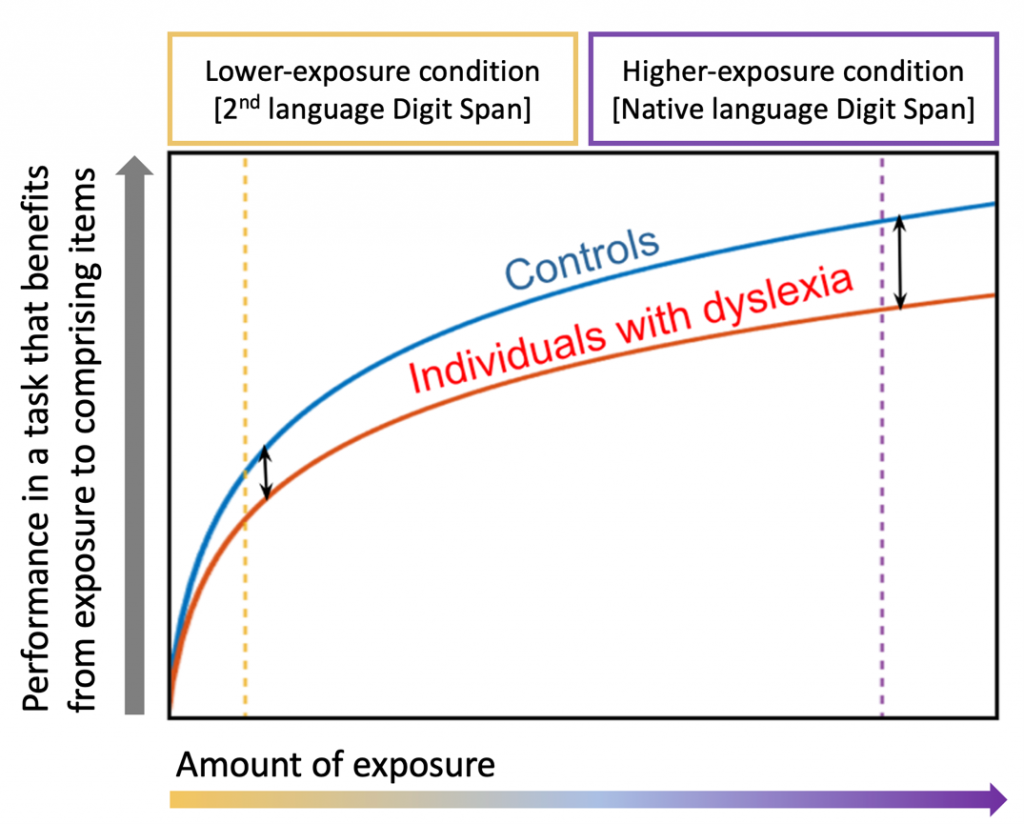Dyslexia, a specific learning difficulty in acquiring proficient reading, is also characterized by reduced short-term memory. But short-term memory doesn’t operate in isolation: Long-term knowledge plays a significant role in how efficiently short-term memory is used. In this paper we examined the hypothesis that reduced short-term memory in dyslexia (to a large extent) reflects reduced benefits from long-term exposure to items.
Individuals with dyslexia were shown to benefit less from repeated exposure to sounds and syllables. Since exposure shapes long-term memory representations, these reduced benefits could also reduce their relative performance in short-term memory tasks. This is especially true when frequent items, to which the participants were exposed a lot, such as digit-words, are used. In this study, we recruited adult participants with and without dyslexia. We asked the participants to remember a sequence of digits and then repeat it. Each participant performed the task twice: once in their native language and once in their second language. Since exposure to the native language is greater than exposure to the second language, we predicted that the performance in the task administered in the native language would reveal a larger group difference than that in the second language, due to the reduced benefit of item frequency/exposure in dyslexia.
The prediction was confirmed, supporting our hypothesis that reduced short-term memory in dyslexia reflects reduced benefits from long-term exposure to items, and that group difference gets bigger with time.

Figure 1.
An illustration of performance in the Digit Span task. The Digit Span task is an example of a task that benefits from exposure to its comprising items: Performance increases with every exposure, and thus it is better in a high-exposure condition compared to a low-exposure condition. Performance of adults with dyslexia is reduced when compared to that of adults without dyslexia, and although their absolute performance increases with exposure, so does their relative difficulty.
Adapted with permission from Kimel et al. (2022), made available by the Creative Commons Attribution 4.0 International License.
